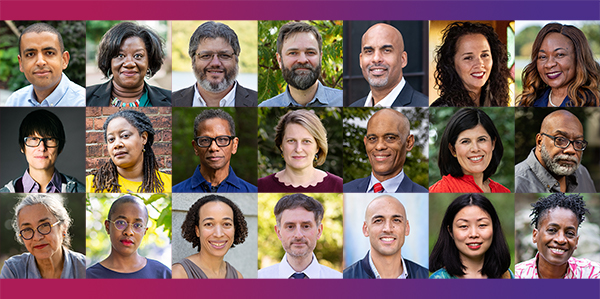CHICAGO (September 25, 2007) – The John D. and Catherine T. MacArthur Foundation today named 24 new MacArthur Fellows for 2007. The new Fellows work across a broad spectrum of endeavors. They include a biomedical scientist, a blues musician, a forensic anthropologist, an inventor, a medieval historian, and a spider silk biologist. All were selected for their creativity, originality, and potential to make important contributions in the future. This past week, the recipients learned in a phone call from the Foundation that they will each receive $500,000 in “no strings attached” support over the next five years.
“The MacArthur Foundation supports highly creative individuals and institutions with the ability and the promise to make a difference in shaping and improving our future,” said MacArthur President Jonathan Fanton. “These new MacArthur Fellows, extraordinary men and women of all ages and in many fields, honor and inspire us with their talent, their courage, and their deep commitment. With the gift of time and unfettered opportunity to create and explore, we are confident that the Fellows will follow their hearts and their minds wherever they lead, making new discoveries and making a difference in the world.”
MacArthur Fellowships offers the opportunity for Fellows to accelerate their current activities or take their work in new directions. The unusual level of independence afforded to Fellows underscores the spirit of freedom intrinsic to creative endeavors. The extraordinary creativity of MacArthur Fellows knows neither boundaries nor the constraints of age, place and endeavor. Recipients this year include –
- a forensic anthropologist unearthing evidence of crimes against humanity and of immense human losses omitted from the historical record (Mercedes Doretti);
- a spider silk biologist revealing the architecture, properties, and function of spider silks and the possibilities of developing new synthetic materials (Cheryl Hayashi);
- a short story writer borrowing from the Old World yet emerging from the New World to feed the imaginations of contemporary Americans (Stuart Dybek);
- an inventor engineering innovations spanning optics, high-performance textiles, and nanotechnology to benefit the world (Saul Griffith);
- a biomedical scientist experimenting with new clinical procedures for temporary reduction of metabolism to provide much needed time for surgeons (Mark Roth);
- a master vocalist stretching the boundaries of operatic and concert singing and shaping and redefining the landscape of contemporary music (Dawn Upshaw);
- a nanotechnologist folding DNA to create complex shapes and patterns that provide a platform for building nanodevices of the future (Paul Rothemund);
- a public health physician improving medical outcomes by analyzing and developing new approaches to patient-physician communications (Lisa Cooper);
- a choreographer drawing from Western dance traditions and Chinese opera, acrobatics, and martial arts to create bold and visually arresting dance-theater (Shen Wei).
“As a group, this new class of Fellows takes one’s breath away. As individuals, each is an original. To the person, they confirm that the creative individual is alive and well, at the cutting edge, and at work singularly and powerfully to make our world a better place. They are people who will change and influence our times,” said Daniel J. Socolow, Director of the MacArthur Fellows Program.
The inaugural class of MacArthur Fellows was named in 1981. Including this year’s Fellows, 756 people, ranging in age from 18 to 82 at the time of their selection, have been named MacArthur Fellows since the inception of the program.
The selection process begins with formal nominations.Hundreds of anonymous nominators assist the Foundation in identifying people to be considered for a MacArthur Fellowship. Nominations are accepted only from invited nominators, a list that is constantly renewed throughout the year. They are chosen from many fields and challenged to identify people who demonstrate exceptional creativity and promise. A 12 member Selection Committee, whose members also serve anonymously, meets regularly to review files, narrow the list, and make final recommendations to the Foundation’s Board of Directors. The number of Fellows selected each year is not fixed; typically, it varies between 20 and 25.



